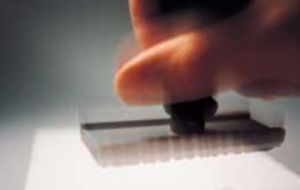MercoPress. South Atlantic News Agency
Central America will ask Biden to slow flood of deportations

Central American leaders are expected to push United States to slow a flood of deportations when Vice-President Joe Biden meets with them Monday, promising a “new day for relations” with a region that has felt ignored.
Vice-president Biden arrived Sunday in Costa Rica, the second leg of his Latinamerican tour after a two day visit to Chile where he met several regional leaders.
“These meetings are a first and important step toward a new day for relations and the development of a partnership between the countries and peoples of the hemisphere,” Biden said in an article published Friday in the Costa Rican newspaper La Nacion.
It is the first top-level visit to the Central America by a US official since President Barack Obama took office in January.
Mexico is receiving most of the US attention to Latin America, with visits from US Secretary of State Hillary Clinton, Attorney General Eric Holder, Homeland Security Secretary Janet Napolitano and even President Obama himself, who plans to stop on his way to the Summit of the Americas in Port of Spain, Trinidad, mid April.
Central American leaders agreed Wednesday to push the US to include Guatemalans in a temporary visa program that is already in place for Salvadorans, Hondurans and Nicaraguans. They also want the US to soften a deportation policy that sent a record 80.000 people back to the region in 2008 alone.
The deportations and US economic downturn have hit the region hard. During the last quarter of 2008, money sent home by Central American migrants living in the US fell 4%, compared to the same period a year previous, according to the Inter-American Development Bank.
Remittances are a major source of foreign revenue for Guatemala, El Salvador, Honduras and Nicaragua. Before the crisis, the amount of money sent to these countries had been growing steadily every year.
During a visit to Central America last week, Deputy Secretary of State for the Western Hemisphere Tom Shannon said Biden will work toward securing loans for Central American social projects from the World Bank or the International Monetary Fund.
Nevertheless Nicaraguan President Daniel Ortega and Honduran leader Manuel Zelaya will not attend the meeting. Neither explained why, but Nicaragua's relations with Washington have been tense since the US froze 175 million US dollars in foreign aid after allegations of fraud in November's municipal elections. Honduras is a close ally of Nicaragua. But El Salvador's former Marxist guerrilla president-elect, Mauricio Funes, is scheduled to attend the meeting.




Top Comments
Disclaimer & comment rulesCommenting for this story is now closed.
If you have a Facebook account, become a fan and comment on our Facebook Page!